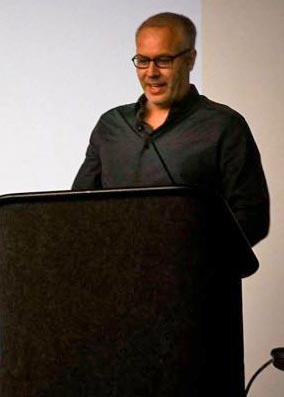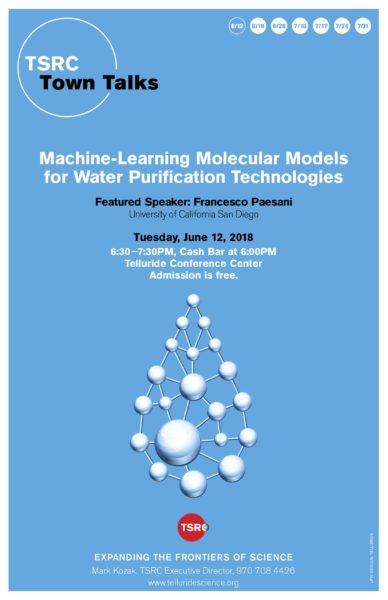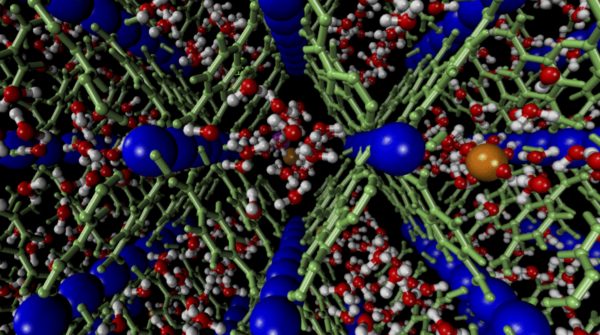
06 Jun TSRC Town Talks: Global Water Solutions on Tap, 6/12
The Telluride Science Research Center hosts Professor Francesco Paesani of the University of California San Diego, His talk, titled “Machine-Learning Molecular Models for Water Purification Technologies,” is the first in a 7-week series of Town Talks presented by TSRC. The event takes place at the Telluride Conference Center in Mountain Village on Tuesday, June 12, 2018, 6:30 p.m. Admission is free; cash bar opens at 6:00 p.m.

We’re waiting for rain here in southwestern Colorado. The dusty trails and sunny skies have us looking to long-range forecasts for hope in the coming monsoons.
Local drought conditions and water restrictions remind us of what’s precious, what’s necessary: water is life – here, and everywhere. Worldwide, over 2 billion people live in areas of water scarcity. Current climate change projections show that between 24 million and 700 million people will be displaced by 2030. The humanitarian and global stability implications are enormous. Huge migrations are expected; with migration, unrest.
Accessible and affordable drinking water is paramount for a peaceful future, and scientists across a wide range of disciplines are working to find solutions to what has been noted as the most pressing issue of the century by entities as disparate as NASA and Goldman Sachs.

Professor Francesco Paesani delivers TSRC’s first Town Talk of 2018 summer season.
Francesco Paesani’s research group at the Laboratory for Theoretical and Computational Chemistry at the University of California San Diego utilizes machine-learning technology to design novel materials that could change the world.
Specifically, Paesani expects that his work will lead to the development of porous materials that can efficiently separate water from ions, making desalinization an economically feasible global water solution.
With 70 percent of the earth’s surface covered by ocean water, desalinization is already recognized as an important prong in the world’s water management plan. Singapore has invested over $7 billion in its water infrastructure and advances in Israel now provide over 60% of that country’s drinking water from desalinization plants, but the energetically expensive process of desalinization remains far out of reach for less wealthy countries.
New materials could change that.
“Physics and chemistry teach us that it is possible to separate water from salts using a process called reverse osmosis,” says Paesani.
Fundamental science is the key to determining how molecules behave, and Paesani’s supercomputer-supported extrapolations from those fundamentals are yielding a profile of the properties of an ideal material for use in large-scale and small-scale desalinization applications.
Paesani notes that he is always “trying to teach my students that the knowledge that we are developing at the fundamental level must be key to real applications. We have a responsibility to make our science not just curiosity-driven, but hypothesis-driven with real applications.”
Predictions made possible from Paesani’s group’s simulations and calculations will allow them to design materials on a computer that will have properties that maximize efficiency when filtering salts. Engineers will translate that science into real materials that can be used economically throughout the world.
Paesani has been coming to Telluride Science Research Center workshops since 2002 and has returned 17 times. To give back to the community that has been an ever-welcoming host, Paesani will kick off the 2018 TSRC Town Talk series with a presentation on his recent research and potential developments on Tuesday, June 12, 2018 at 6:30 p.m. at the Telluride Conference Center in Mountain Village.

About TSRC & Town Talks:
TSRC Town Talks are free public presentations by world-renowned scientists on topics of great current importance in science, technology, education, and public policy. Each scientist talk is followed by an interview and Q&A session moderated by Emmy and Peabody award-winning television correspondent and professor emerita of broadcast journalism at USC’s Annenberg School of Communication and Journalism, Judy Muller.
With a network of over 5,000 preeminent scientists from over 90 countries and 500 institutions, TSRC generates the fundamental knowledge-base for new solutions in many fields including energy, medicine, water, climate, national security, and advanced materials for computing and manufacturing.
To learn more about TSRC and the capital campaign to purchase the Telluride Depot as TSRC’s permanent home, visit telluridescience.org.


Sorry, the comment form is closed at this time.